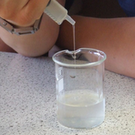
This weekend, conferences about multiple myeloma will be held in Hawaii, Canada, Greece, and Arizona. The conferences in Hawaii and Canada are more patient-focused and have question and answer sessions. The conferences in Greece and Arizona are targeted towards oncologists and health care professionals, providing certificates of attendance for career development.
Registration is free for the workshop in Hawaii; however, the conferences in Canada, Greece, and Arizona have registration fees.
Hawaii Regional Community Workshop
September 11, 2009 in Honolulu, Hawaii …
Read the full story »

Research shows that approximately 20 percent of multiple myeloma patients develop kidney failure. Kidney failure occurs as a consequence of elevated calcium levels in the blood or when proteins called light chains are produced in excess - overloading the kidneys with protein.
Normally, the kidneys remove wastes, extra fluids, and minerals from the blood. But when they stop functioning, harmful wastes build up and this can cause other complications such as high blood pressure. Generally, kidney failure can worsen …
Read the full story »

Anti-tumor activity in multiple myeloma after Velcade (bortezomib) treatment has been thought to result from the drug inhibiting a protein complex that regulates the immune response. Now, scientists think that Velcade works through other mechanisms.
The complex is known as NF-kappaB. When it is activated, it causes the body’s cells to respond to foreign particles and cause an immune response. Initially, Velcade has been thought to work by blocking the function of enzymes, including the complex NF-kappaB, that break …
Read the full story »

A recent study, presented at the International Academy of Oral Oncology, suggests that in order to prevent jawbone disease, myeloma patients should receive a dental examination before beginning bisphosphonate (BP) therapy.
The duration of BP therapy and the severity of myeloma are linked to the development of jaw bone disease, or osteonecrosis of the jaw (ONJ). ONJ occurs when there is a loss of blood supply to the jaw, causing the jawbone tissue to die.
BPs are a class of …
Read the full story »

In England and Wales, the National Institute for Health and Clinical Excellence (NICE) has finalized guidelines for the use of Revlimid (lenalidomide) in combination with dexamethasone (Decadron). The guidelines recommend the use of Revlimid for myeloma patients who have already received two or more prior therapies.
NICE is an independent organization that provides medical opinions to the National Health Service (NHS), the government-funded health care system in the U.K.
Based on NICE’s recommendation, the NHS will only pay …
Read the full story »

A recent Phase 2 study, presented at the European Hematology Association (EHA) meeting, showed that a regimen of Velcade (bortezomib), dexamethasone (Decadron), and doxorubicin (Adriamycin), or VDD, resulted in improved kidney impairment in multiple myeloma patients.
Multiple myeloma patients often face kidney complications including acute light chain induced renal failure (ARF). ARF is a serious complication that can lead to permanent kidney dysfunction and reliance on continual hemodialysis. A normal kidney produces urine for excretion but reabsorbs …
Read the full story »

At the American Society of Clinical Oncology (ASCO) meeting on May 30, Dr. Julie Ryan will present a study showing that ginger supplements significantly reduce nausea induced by the first chemotherapy treatment.
The majority of cancer patients who undergo chemotherapy are given drugs, called 5-HT3 antiemetics, to prevent vomiting and nausea caused by the therapy. Most patients report the most severe nausea on the first day of chemotherapy. Some doctors use spice ginger to treat the symptoms of nausea.
Dr. …
Read the full story »

